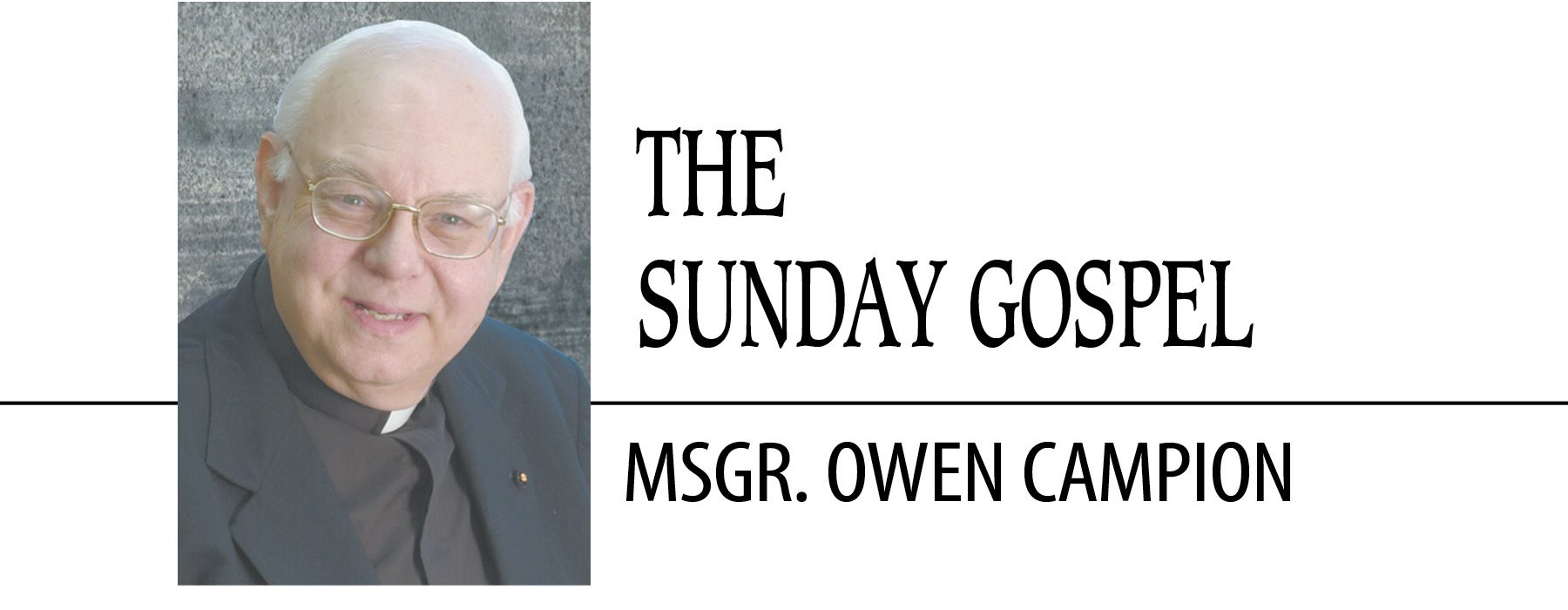June 12, 2021 // The Sunday Gospel
God wills us to be mighty in holiness
Eleventh Sunday in Ordinary Time
Mark 4:26-34
The first reading for this weekend’s liturgy is from the Book of Ezekiel. Ezekiel is regarded as one of the great Hebrew prophets.
Not interested in themselves, but only in relaying the revelation of God, the prophets rarely left any biographical details about themselves. This does not mean, however, that utter mystery surrounds them all. For example, clearly, Ezekiel was active as a prophet during the Hebrews’ captivity in Babylon. Apparently born in Judah, he was in Babylon as one of the original exiles rather than being descended from an exile who came earlier while he himself was born in Babylonia.
It is interesting to imagine the psychological state in which the exiles lived in Babylon, and how their mental frame of mind affected the fervor of their religious belief and practice. Since they were humans, as are we, despite all the difference between their time and our own, basic human feelings pertained for them as they would for us.
Ezekiel encountered great faith, without doubt, but he also most surely met despair, anger and disbelief in the power and fidelity of the God of Israel among his contemporaries.
The prophet in preceding verses bemoans the unfaithfulness of the kings of Judah and their people, never accusing God of infidelity or indifference. In this reading he insists that God will restore the people to security. God is faithful. People must be faithful as well to God.
St. Paul’s Second Letter to the Corinthians offers the second reading. In the background is an obvious interest in earthly death and its consequences. By the time Paul wrote and preached, Christians already were being held in suspicion by the culture, and even more ominously, by political authorities.
The apostle urges the Corinthian Christians to see heaven as “home,” and to prepare for an end of earthly existence when they will have to answer before the judgment throne of Christ.
For the last reading, the Church presents a parable from St. Mark’s Gospel. It is the familiar story of the mustard seed. The Lord likens the kingdom to the growth of a plant into a mighty bush. The implication for us is that we grow, rooted in our place in the kingdom, if we follow Jesus.
This story confronts us with our own potential and with our responsibility as disciples. The growth of the mustard seed from the moment of being planted, to budding and then to full maturity, is inevitable. It is God’s will and God’s plan, unfolding in nature. Belonging to God, planted by God, it will become the greatest of all plants.
In our humanity, we are small, and we are limited. Still, God wills us to be great and mighty in our holiness, to grow into the strength and majesty of the fully developed bush. This is God’s will and God’s plan. We must make of ourselves the rich produce to be gathered by God in the great harvest that will come at the Last Judgment.
Reflection
The Church in these readings brings us to face that event common to all things living but rarely acknowledged and always feared by humans: death, loss of life on this earth, the source of ultimate dread.
The long, dreary year of the pandemic reminded us of the reality of death.
Never veiling reality, but facing fact, the Church, the teacher of genuine truth, places in context life, death and survival. Straightforward with us, it notes that we all will die, but earthly life is not the be-all and end-all.
Life shall endure after physical death. What exactly will this mean? It is a question to be answered personally, by every person, deep from within each heart. It will mean everlasting life — if we live now with God.
The best news. Delivered to your inbox.
Subscribe to our mailing list today.






